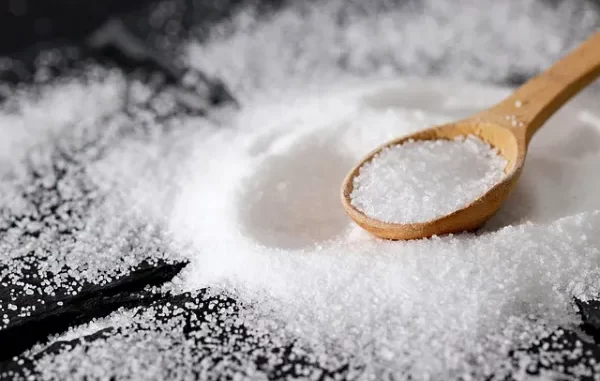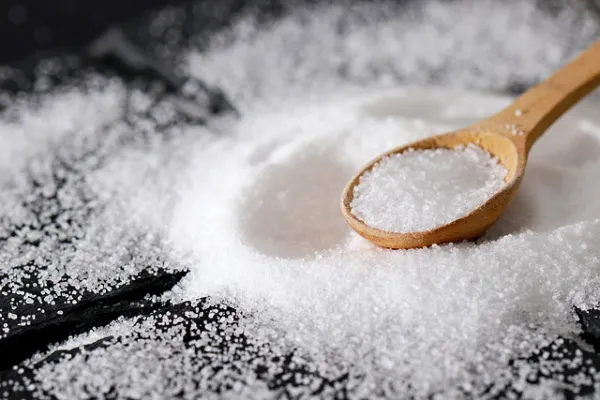
Salt has been around for thousands of years and is one of the most common ingredients used in cooking. It adds flavor to food and helps preserve it for longer periods of time. But did you know there are many fun facts about salt that you may not know? From its history to its many uses, salt is a fascinating topic. In this article, we will explore some fun facts about salt.
Uncovering the Surprising History of Salt
Salt has been an essential part of human civilization since the dawn of time, and the history of salt is a fascinating one. Salt was once so precious that it was used as a currency, and it has been used in religious ceremonies, as a preservative, and as a seasoning throughout history.
Salt has been mined since prehistoric times, with the earliest evidence of salt mining dating back to 6,000 BCE in Romania. Ancient Egyptians used salt in the mummification process, and salt was often used to pay the wages of Roman soldiers. During the Middle Ages, salt was so valuable that towns and cities were built around salt springs and salt mines.
Salt was also used as a preservative. In the 16th and 17th centuries, salting was the primary method of preserving food, and salted codfish became an important part of the diet in many parts of Europe. It was also used as a seasoning to enhance the flavor of food.
In the 18th century, salt became even more valuable as a result of the French Revolution. The French government imposed a high tax on salt, which led to the rise of smuggling and other illegal activities. This high tax also sparked the famous march of the salt tax protesters in India in 1930.
Today, salt is still an important part of culinary culture around the world. It is used in a variety of dishes, from French fries to seafood, and it is often used to cure meats such as bacon and ham. Salt is also used in a variety of industrial applications, from de-icing roads to manufacturing paper.
The history of salt is a long and fascinating one, and it is still an essential part of human civilization. From its ancient beginnings to its modern-day uses, salt has been an important part of human life for thousands of years.
Amazing Salt Facts from Around the World
Salt is an essential mineral that is found in nearly every kitchen around the world. It has a long history of use in cooking, preserving, and even as a currency. Here are some interesting salt facts from around the world:
- The oldest known use of salt dates back to 6000 BC, when it was used in the Chinese culinary culture.
- Salt was used as a form of currency in some of the earliest civilizations such as Egypt and Rome.
- In the Middle Ages, salt was considered so valuable that it was used to pay taxes and soldiers’ wages.
- Salt was even used as a form of currency by the Native Americans who traded it for other goods.
- In some parts of the world, salt is still used as a form of currency today.
- The word “salary” comes from the Latin word “salarium”, meaning “salt money”.
- Salt is an essential mineral for human health and is often used to flavor food and preserve it.
- The Dead Sea in Israel is one of the saltiest bodies of water in the world, with an average salt concentration of 33%.
- The world’s largest salt flat is Salar de Uyuni in Bolivia, covering an area of 10,582 square kilometers.
- The largest salt mine in the world is the Sifto Salt Mine in Ontario, Canada.
- The world’s oldest salt mine is the Hallstatt Salt Mine in Austria, which has been in operation for more than 7,000 years.
- The world’s saltiest lake is Lake Assal in Djibouti, which has a salinity of approximately 35%.
- The world’s most expensive salt is the Fleur de Sel, which is harvested from the shallow waters of the Mediterranean Sea.
- The world’s oldest known saltworks is located in Romania, and it dates back to the Neolithic period.
- The world’s largest producer of salt is China, which produces more than 40% of the world’s salt.
Weird & Wonderful Uses for Salt
Salt is one of the most versatile and ancient condiments in the world, and its uses extend far beyond adding flavor to food. Throughout history, salt has been used for a variety of purposes, including preserving food, improving health, and even creating art. Below are some of the most interesting and unexpected uses for salt.
Preserving Food: Salt has been used for centuries to preserve food. It draws moisture out of food, killing bacteria and preventing spoilage. Traditionally, salt was used to preserve meats, fish, and other food items, but it can be used for other types of food as well.
Improving Health: Salt has been used for centuries to treat a variety of ailments, including congestion, muscle aches, and fatigue. It is believed that salt helps to draw out toxins from the body, providing relief from illness. Many people also use salt baths to relax and ease sore muscles.

Creating Art: Salt can be used to create beautiful works of art. A technique known as salt painting involves painting with a mixture of salt and watercolor. The salt absorbs the watercolor and creates unique patterns and textures. Salt can also be used to create 3D art, by pressing the salt onto a surface and then using a heat source to create a unique texture.
Cleaning: Salt can be used to clean a variety of surfaces and objects. It is believed to be an effective cleaner and can be used to scrub away dirt and grime. Salt can also be used to remove stubborn stains from fabric and carpets.
These are just a few of the many interesting and unexpected uses for salt. Salt has been a part of human history for centuries and is still relevant today. With its many uses, salt is sure to remain a popular and versatile condiment for years to come.
Exploring the Health Benefits of Salt
Salt is a dietary essential that has been used for thousands of years. It is a mineral composed of two elements, sodium and chloride, and is found naturally in a variety of foods. Despite its bad reputation, salt is an essential nutrient that has many health benefits.
The primary benefit of salt is that it helps the body maintain fluid balance. Sodium helps to regulate the amount of water in the body’s cells, and it also helps to move essential nutrients in and out of cells. This helps the body stay healthy and perform its various functions.
Salt also helps to regulate blood pressure. When salt levels are too low, the body’s blood vessels constrict, which can lead to high blood pressure. Consuming a moderate amount of salt can help the body maintain healthy blood pressure, and can also help to reduce the risk of heart disease, stroke, and other cardiovascular conditions.
Salt is also important for muscle and nerve function. Sodium helps to keep muscles and nerves working properly, and helps to regulate muscle contractions. Without the proper amount of salt in the diet, muscles may become weak or uncoordinated, and nerves may become overly sensitive.
Additionally, salt helps to keep the bones strong. Sodium helps to absorb calcium, which is essential for strong and healthy bones. When the body does not have enough sodium, it can lead to an increased risk of osteoporosis.
Finally, salt is important for proper digestion. Sodium helps to break down food and helps to absorb nutrients. Without enough salt in the diet, digestion can become sluggish and nutrients may not be absorbed properly.
Overall, salt is an important nutrient that has many health benefits. It is important to consume a moderate amount of salt in order to maintain health and prevent various diseases.
Salt is an incredibly versatile and important mineral that has been used for centuries in a variety of ways. It has a wide range of applications, from food preservation to industrial processes. In addition to its many practical uses, salt also has some fascinating facts associated with it. From its history as a form of currency to its role in the human body, salt provides us with an interesting insight into our natural world.
If you liked our article Fun facts about salt, you might also like Fun facts about meat.






Leave a Reply